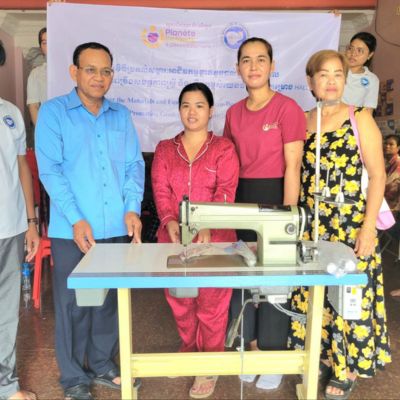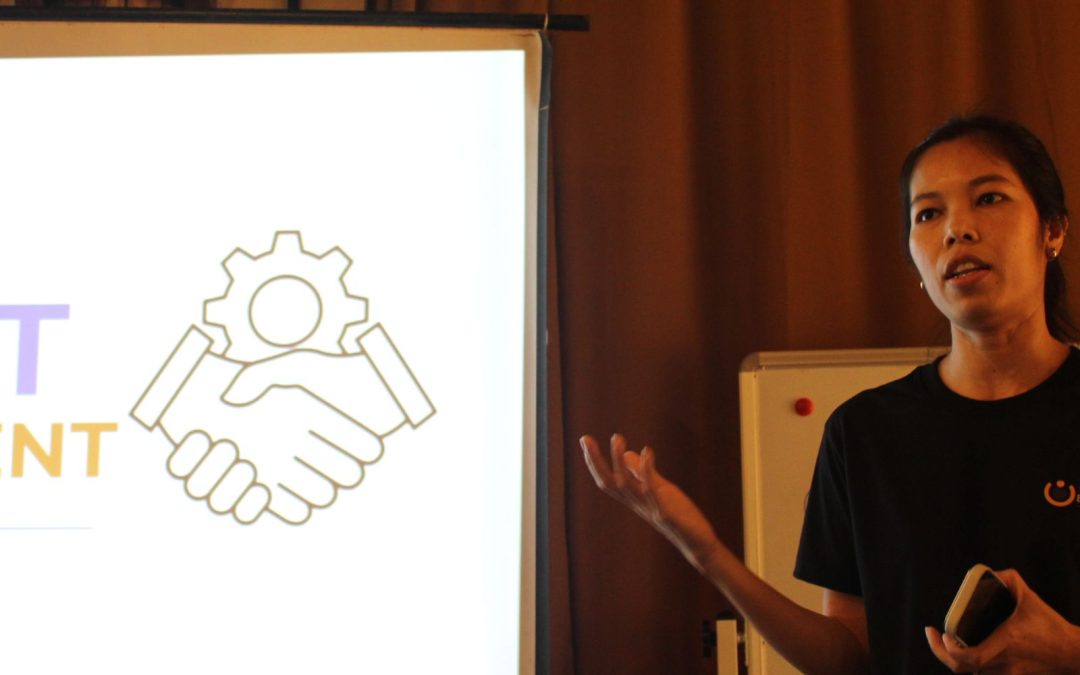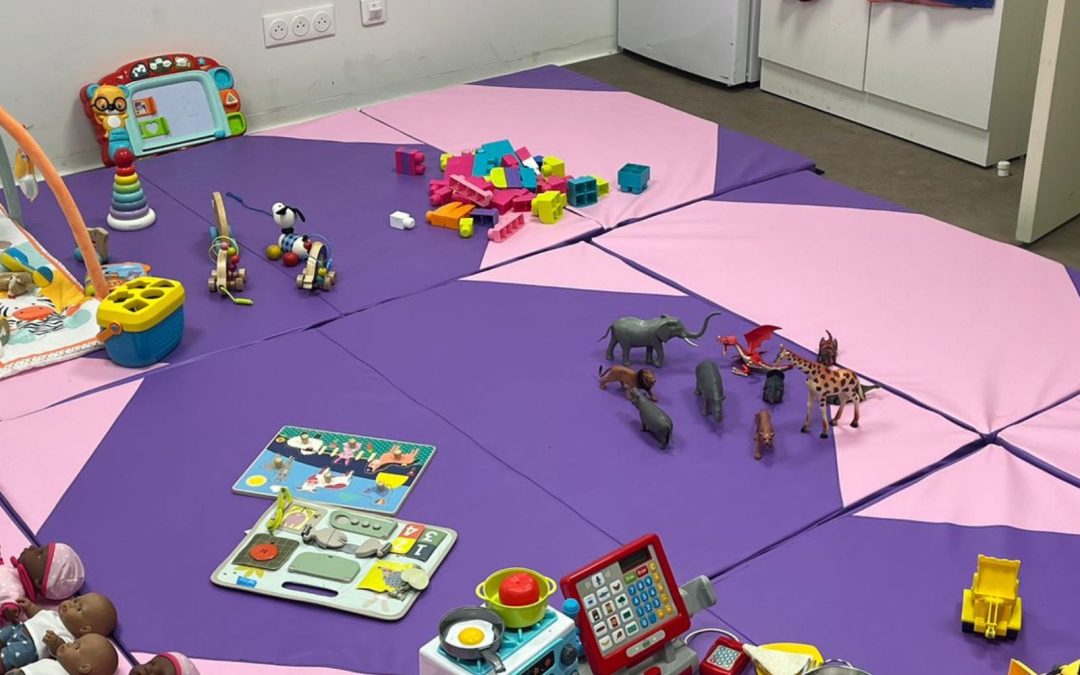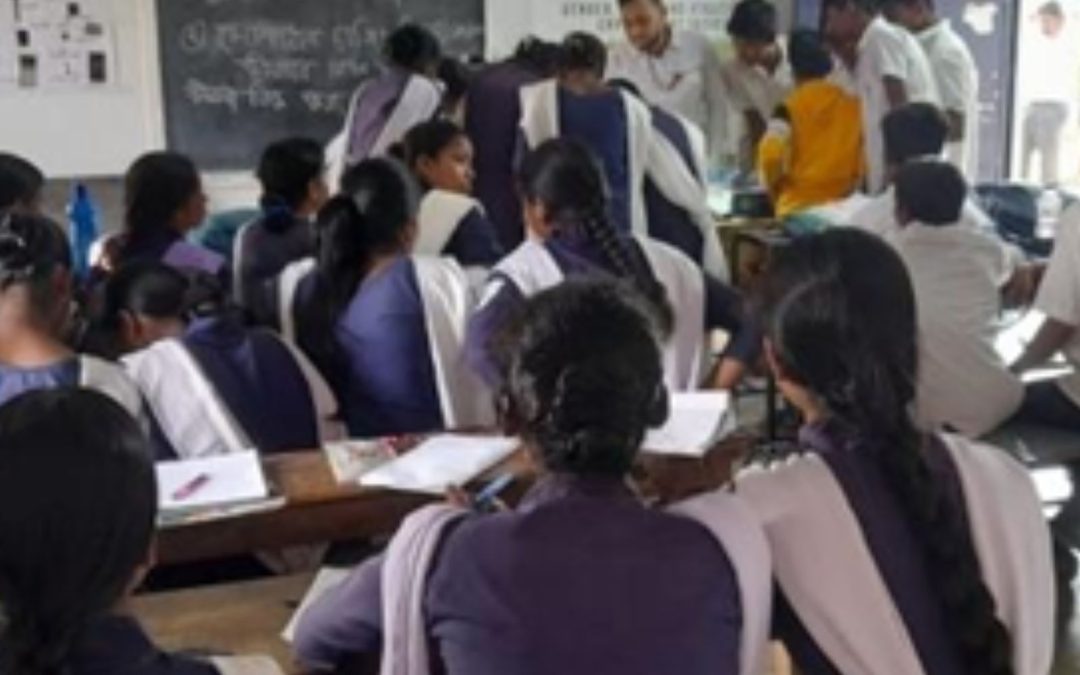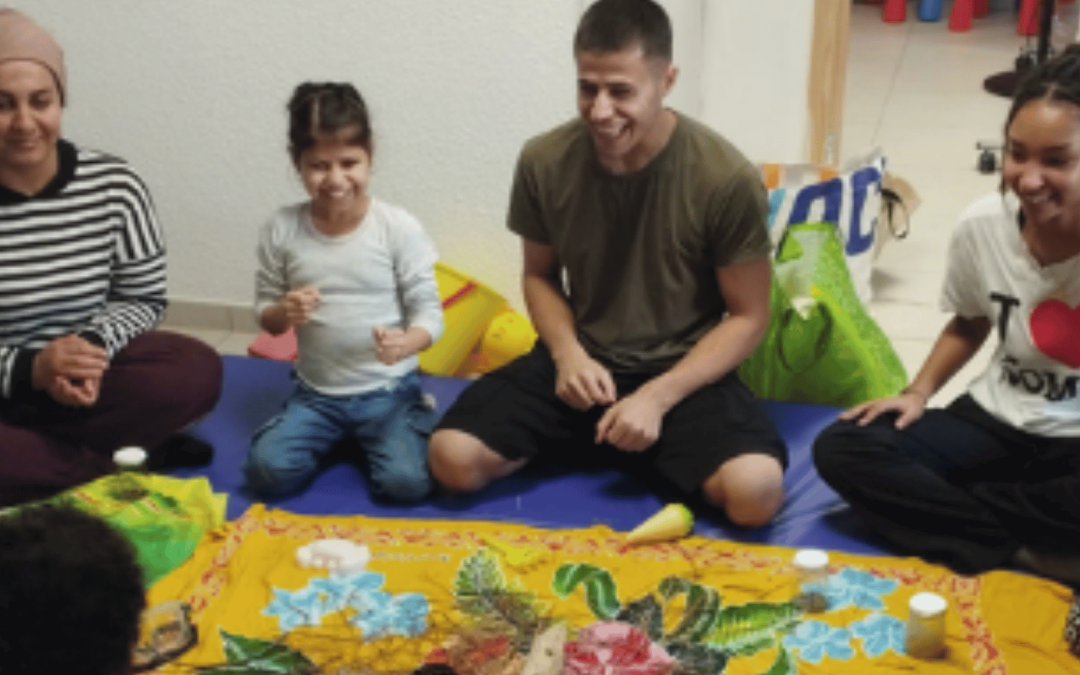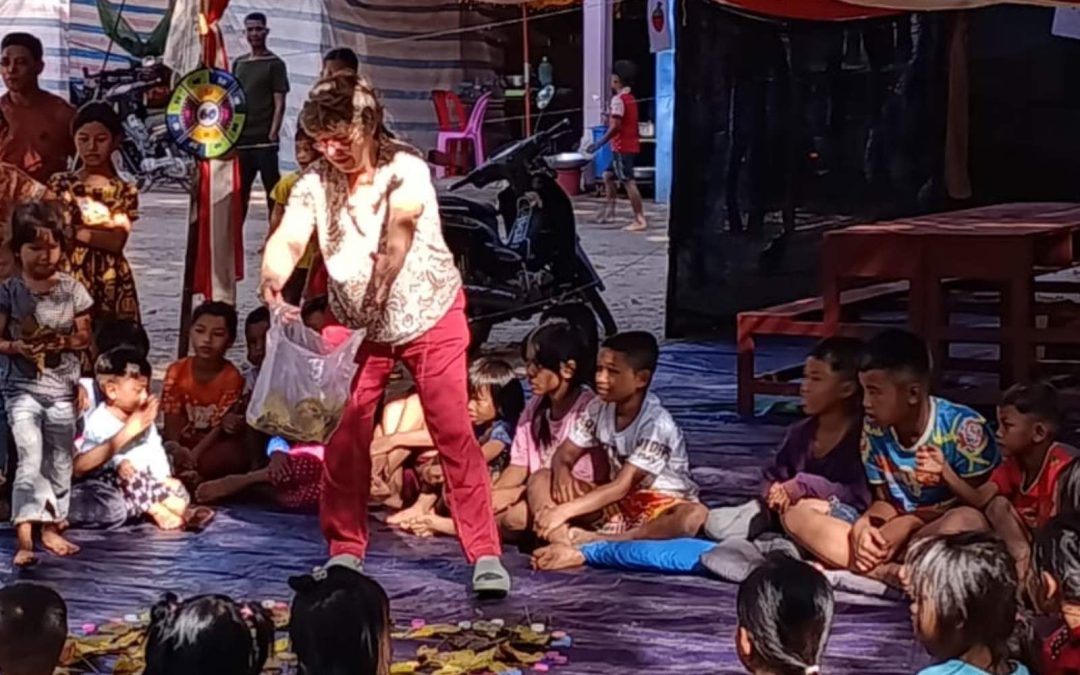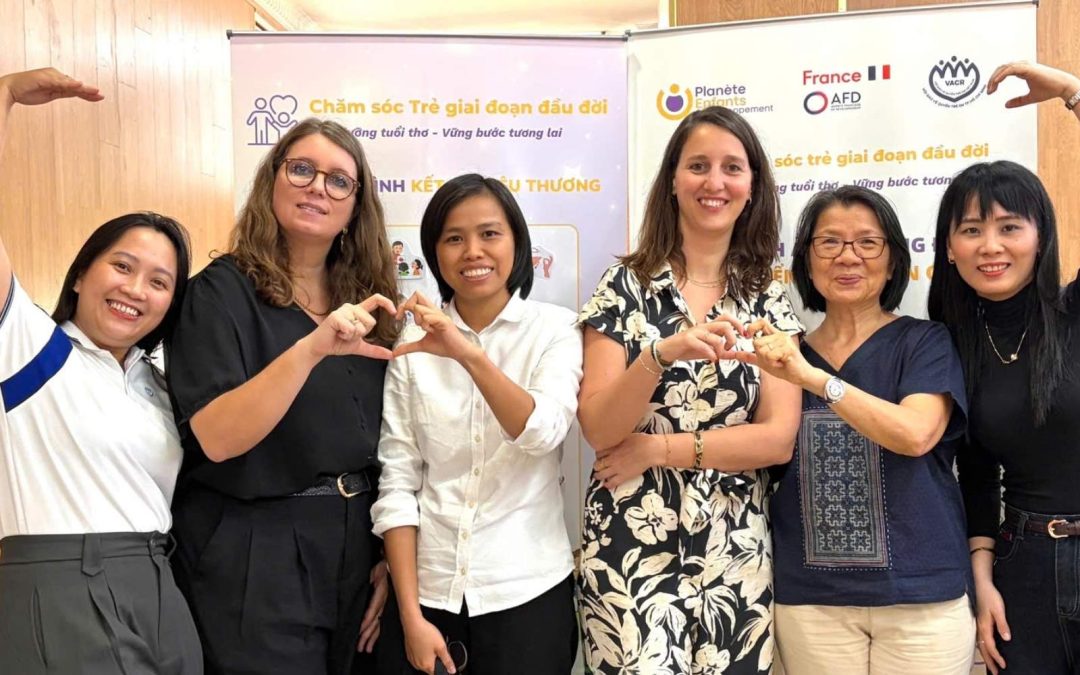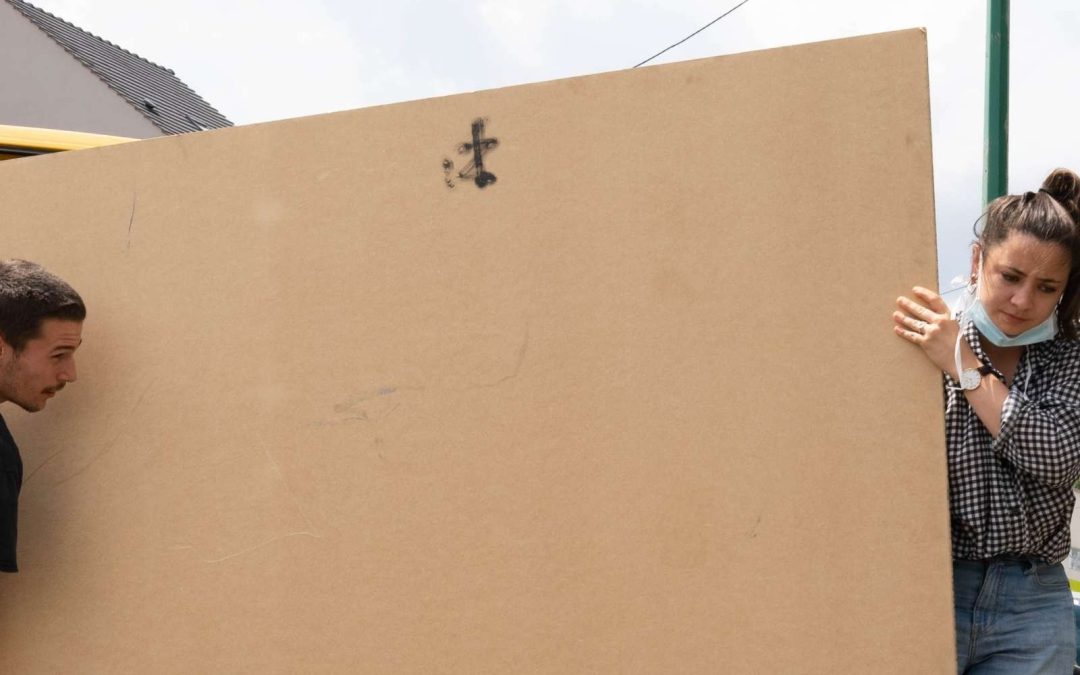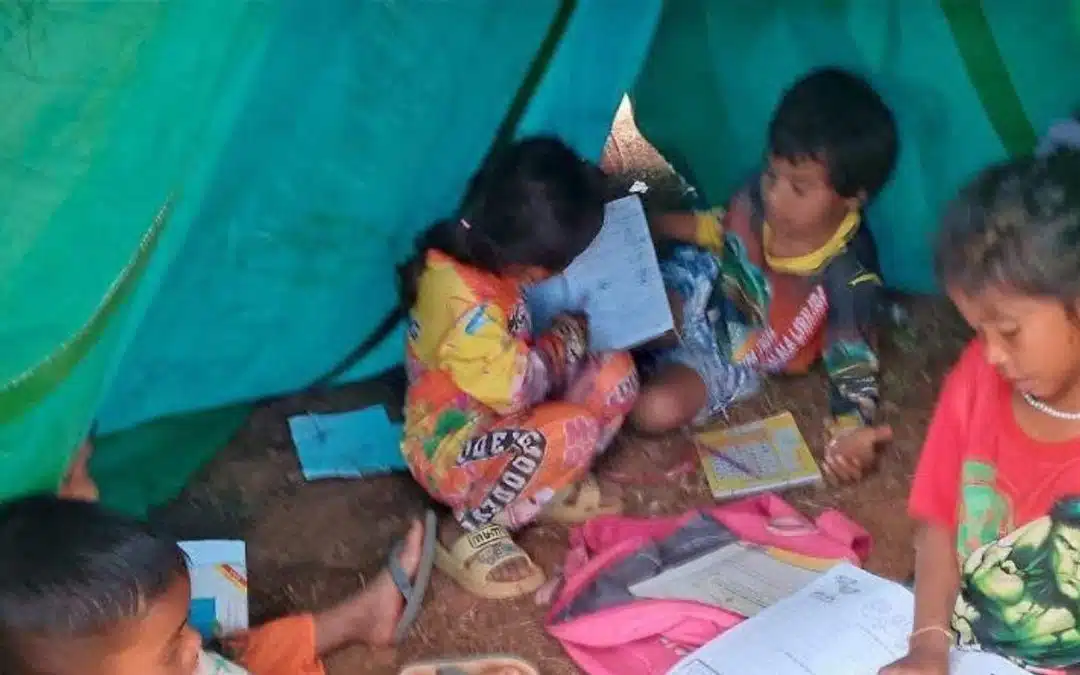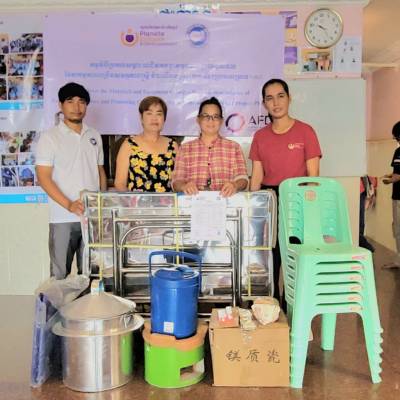
On April 29, we distributed professional equipment to the first 14 beneficiaries of our microenterprise development program in Sensabay, a suburb of Phnom Penh, Cambodia. Gathered at the local community center, they signed their partnership contract and received shopping carts, kitchen equipment, bicycles and sewing machines.
Chan Saren, 42, received a baking cart to develop his cake business.
Chan Saren lives in Sensabay and is one of the families cared for by our social workers. In the mornings, she sells Khmer cakes with her husband and one of her sons. In the afternoons and evenings, she runs a mobile beauty salon.
In 2010, Chan Saren and his family moved to Sensabay after their house burned down. Factory workers, they managed to buy an old family home with a loan. The family grew. Chan Saren stopped working at the factory to look after her children, while her husband set up a business selling Khmer cakes. He trained as a pastry chef, while working as a motorcycle cab driver. While her husband wanted their children to leave school to contribute to the family income, Chan Saren, who had never learned to read and write, remained steadfast, convinced that education would offer them better opportunities and a brighter future.
Chan Saren then joined the family business. And to supplement their income, she took beauty classes and launched her own beauty business.
Through long, tiring days, Chan Saren and her husband manage to earn between 20 and 25 dollars a day, a sum insufficient to pay off debts, pay school fees and support the family.
That's why Chan Saren wants to expand their cake business. With the help of her children, she's already learning to read, write and use instant messaging apps to set up appointments with her customers.
Thanks to the support she has received from the project, she plans to provide for her children's education, renovate their home and cover household expenses. It's an investment in a better future for her and her family.
This distribution of professional equipment marks the culmination of an initial candidate selection process begun in December with our local partner CEDT. After receiving 44 applications and conducting 37 interviews, our teams selected the first beneficiaries according to precise criteria: low income, permanent residence in Sensabay, entrepreneurial motivation and availability for training.
All participants in this activity also receive a 3-day training course on how to draw up their business plan, and on financial management of their business and family budget. CEDT teams will then provide regular follow-up at 2 weeks, 2 months and 4 months after the handover, to assess the progress of the activities.
The next group of beneficiaries will be selected in the coming weeks. The aim is to support the development of 30 micro-enterprises in the Sensabay district, by providing material, technical and human support.
This activity is part of our HaLI project, which aims to improve conditions for families in the slums of Phnom Penh.
